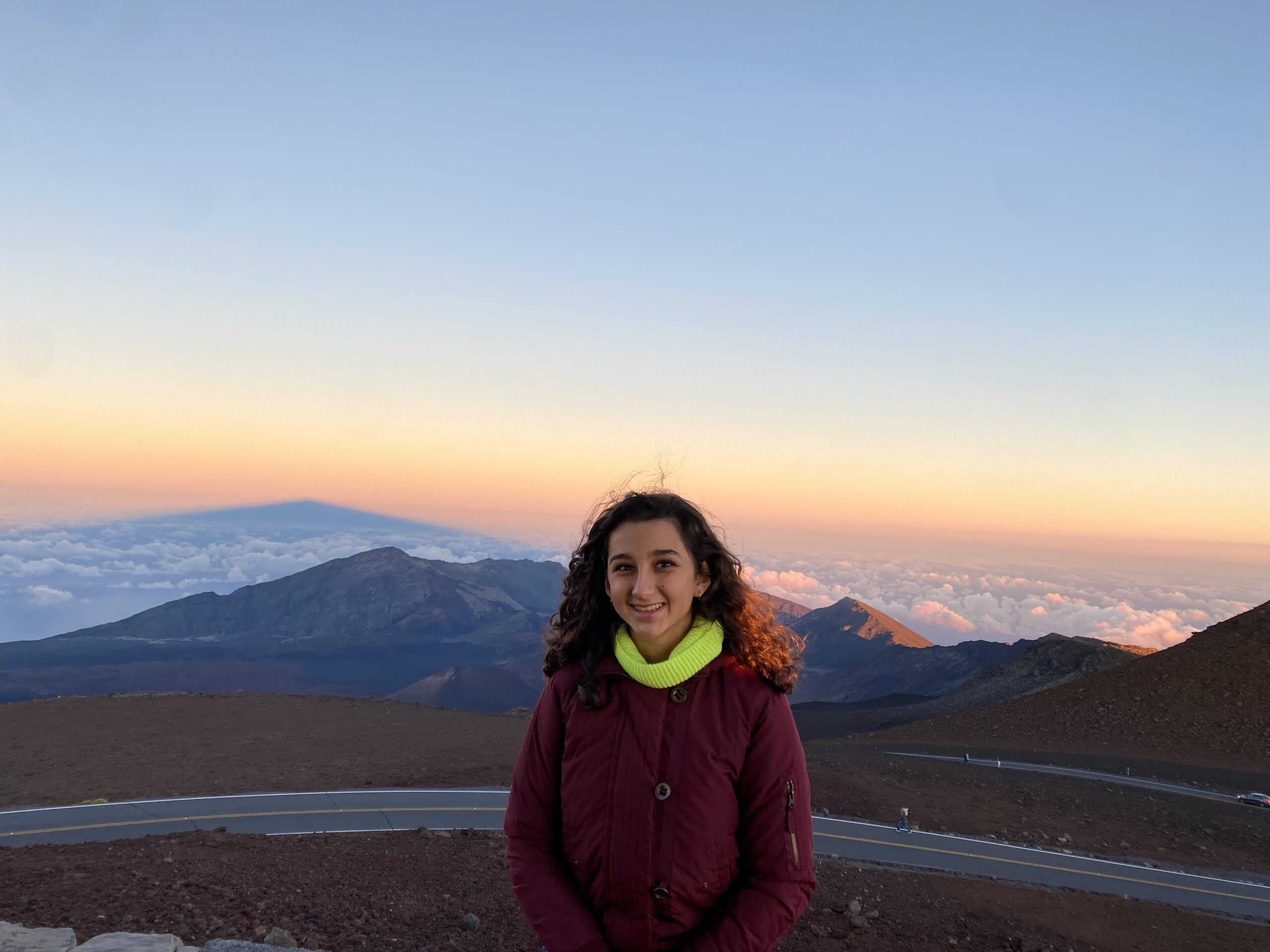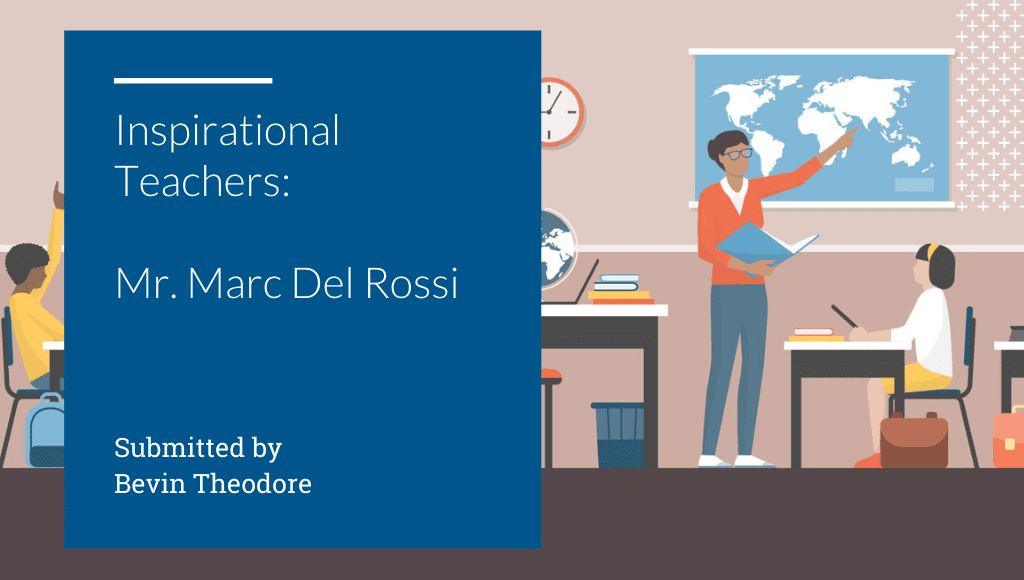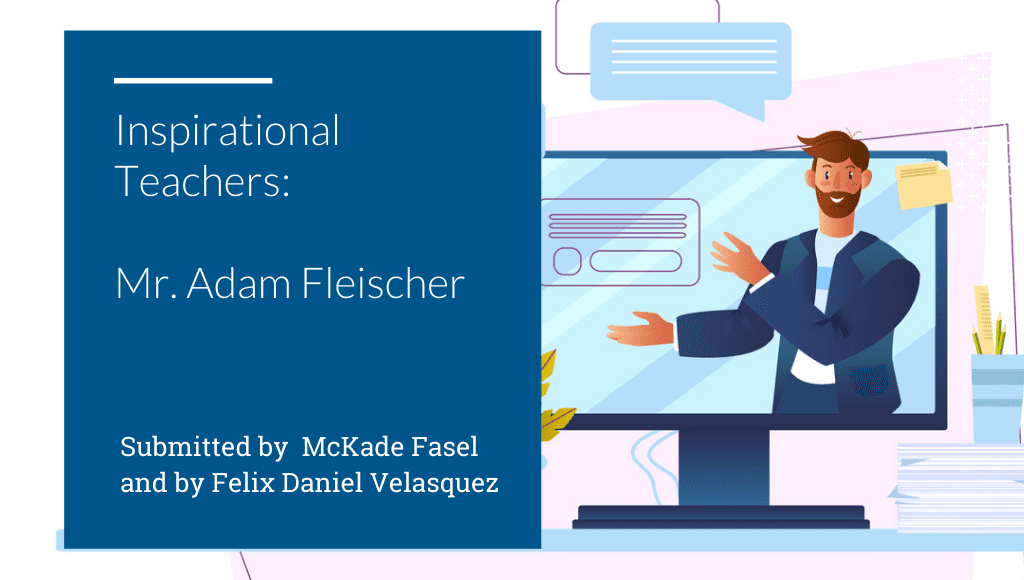
Since 2017, Charter School Capital has held an annual essay contest celebrating exceptional teachers. We call it the Dewey Awards, in celebration of Mr. Richard Dewey – a teacher who provided exceptional mentorship to our founder and CEO Stuart Ellis. Every year we get a brilliant selection of stories written by students from charter schools all over the nation. This year’s winners are featured here. But each of these stories is worth sharing.
This week we bring you two stories, both honoring the same teacher: Mr. Adam Fleischer of Kihei Charter School. One was written by McKade Fasel and one by Felix Daniel Velasquez.
Sent by McKade Fasel
Mr. Adam is a High school humanities (ELA and Democracy) teacher. Mr. Adam has inspired me so much in life. He has inspired me to do my best in life. He has an extremely charismatic personality that just can’t be replicated by other teachers. All of my peers and I love him. He knows how to be serious and fun at the same time. If there is anybody you want to see happy it is him. He is so cool.
He was the first teacher in our entire school to use Discord. One of the reasons why he is so cool is because he gives us opportunities to do extra credit. Because of this, I have a 107 in his class which is an A+. This just proves that he wants to see us succeed. He changed who I am. Before being in his class, I used to have C+ and B-’s for grades. Now, I have 100s in ELA. This is because he makes the work super easy to pass. I am really thankful for how much effort he has put into us.
A few years ago, he used to work as an EA (educational assistant). An EA is someone who goes around making sure the teachers have a little bit of help when teaching the kids. EA’s have to love working with kids and Mr. Adam did that so well. EA’s usually do simple jobs like Recces monitor (interacting and engaging with the kids while they play). Mr. Adam Impressed those above him so well, they put him in the ranks of a teacher. Speaking of ranking, our school has a rather unofficial ranking system. It goes like this: EA, Teacher, Principal, and then at the very top is the Head of the school. The reason why we have a head of school above the Principal is because our school is a K-12 school. There are three divisions: Elementary (K-5), Middle (6-8), and High (9-12). Even though it sounds big, Our school has about 1,500 students. That is to give you perspective on just how many teachers there are.
Sent by Felix Daniel Velasquez
In the beginning, this school proved to be a challenge, but I could not have gotten the opportunities to find my future without my teachers. In this unsuspecting, gnarling situation, these people helped me learn the aspects of how to process information and how to move on with life. I believe a multitude of teachers and educators have helped me during these times as my life could not have changed without their help. My teachers have opened the door of knowledge for subjects like current events, technological knowledge, coronavirus, and most importantly 21st-century skills.
At the beginning of the school year, my educators opened the gate for opportunities that are occurring in our generation. These opportunities are known as current events. I used current events in Humanities (Language Arts and History), and Biology. One instance of my knowledge of current events is the California Apple Fire that was raging in August. The fire has since been put out long ago, but at the time was a cause for concern. It was caused at a local gas station by a car engine and since then burned around 25,000 acres. This assignment was for Mr. Adam Fleischer. Another instance of current events being acknowledged was when I wrote the final essay for the book The Hate You Give. To sum it up, this book’s theme is based on police brutality and racism. Similar real-life instances like the George Floyd and Breanna Taylor incidents correlate with the theme in The Hate You Give, all involving police brutality and their actions not being held accountable towards them.
Our essay was to state our opinions on the book and how the main idea of the book relates to real-life instances. The final instance of this topic being displayed is the current event assignments/presentation for biology class. The current events were based on scientific studies or theories that were published in the year 2020. For example, one of my most recent current events was based on CRISPR, a gene-editing tool that is still in the works. It states how an engineer could make a faster, more efficient way of COVID testing. The engineer, Doudna, tested COVID-19 with SARS-CoV-2. The results were nearly identical at around 93% and reported a minuscule value of false positives. This assignment was for Mrs. Wilson. Therefore, these educators have changed my life by opening the door to current events that prepare me for what’s cooking in the outside world. Another topic that caught my attention was technical knowledge.
During this unprecedented time, many schools decided to go virtual rather than in-person education. Because of this, students across the nation would have to learn how to use computers and other devices associated with zoom conferencing and google classroom. Mr. Hazlet was essentially an aid support because he introduced multiple technological tools such as chrome extensions and PIXLR. He has also taught students that are new to zoom on how the video conferencing software operated. Since most of the work in the Kihei Charter is now on Google Classroom, the most important aspect my educators have taught my classmates and I was the mechanics of Google Classroom. I turn in a plethora of assignments using google classroom and especially my digital portfolio which was created on a site known as Weebly, where I also made an educational website based on the Scoville scale. Numerous other programs like Google Docs, Slides, Sheets and Jamboards were also important tools that came in handy when it comes to virtual assignments.
All things considered, educators from Kihei Charter School have changed my life because they have provided me with the assets necessary to learn during this dangerous time.
Today, one of the well-known events unfolding during this time is the coronavirus pandemic. When it all began, schools closed, businesses shut down and filed for bankruptcy and the unemployment rate reached an all-time high. The whole world entered a state of fear and paranoia. In biology class, we are talking about genetics which is now further simplified to the molecular structures essential to all life as we know it. During this outbreak, it is highly encouraged that you are educated about the coronavirus. Coronavirus mainly spreads through the air via airborne droplets as it binds to a receptor in your cells with a substance called DPP4 to release its RNA into your body’s cells. This then causes the cell to create more copies of the virus. Therefore, it is very important to stay safe at this time which also means to protect yourself from the virus by avoiding contact with those who are infected and to avoid large gatherings. Part of staying safe also includes staying healthy as my health teacher Coach Jerry assigned material via Acellus on how to stay healthy and fit and avoid drug abuse.
Mrs. Wilson has also assigned a multitude of assignments so we can understand this topic better such as the upcoming coronavirus project and current event assignments particularly focused on coronavirus. Taking everything into consideration, teachers I could trust from my school have changed my life by providing me with some information on the coronavirus and most importantly, how to stay safe. The most important aspect is 21st-century skills as there is a whole wide world full of possibilities and you can only expect the unexpected. To get us ready for what we will face in our long-term careers and goals are the 21st-century skills, the algorithm of Kihei Charter School.
These skills are essential to school and long term careers because it is most commonly referred to in careers like in the medical field. For instance, one skill requires a student to keep track of their learning needs and to have goals. This is important because the student would know to be prepared for the outside world. Another way I used the 21st-century skills will be in a plethora of projects such as the model congress bill project and the coronavirus project for biology.
These assignments also conform to Interpersonal skills as these projects require peer evaluation in order to move forward. For example, I have reviewed other student’s work samples with details such as being less vague on their topics. This comes to show you how important it is to have the ability to acknowledge and use 21st-century skills to your advantage. Taking everything into consideration, educators from my school have made it possible for me to adapt to this school because they provided the tools and practice for what’s kicking on my bucket list. I believe that teachers were important during this unprecedented time because they catered to my needs for the future. With the help of numerous educators at Kihei Charter School, my new knowledge had an impact on my daily life as a whole. For instance, because of the new technology being applied to the overall schoolwork, I have adapted and learned how to use technology to my advantage in this gnarling situation. This conforms to one of the 21st-century skills, Information Skills. Speaking of which, the educators have also provided the materials necessary for future development. An example of this would be the digital portfolio I used for a student-led conference. Based on the information provided by my educators, I have made a final decision on who helped me out the most to help me succeed and prepare for the future.
Taking everything into consideration, I believe Mr. Hazlet was the most helpful of all my educators because he provided the materials needed to not only do assignments virtually but to also help plan for my future by providing me with the basics to create a portfolio.
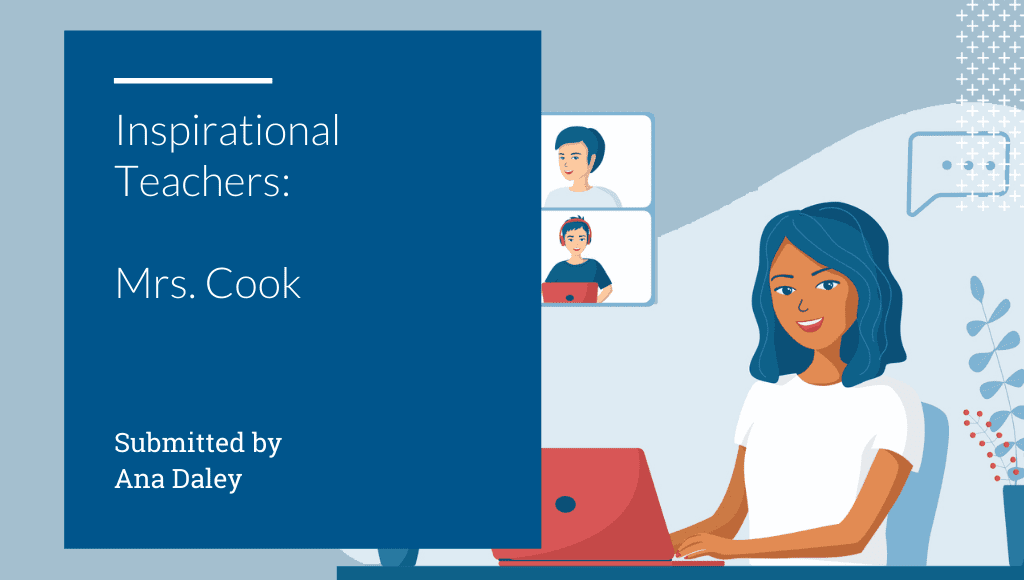
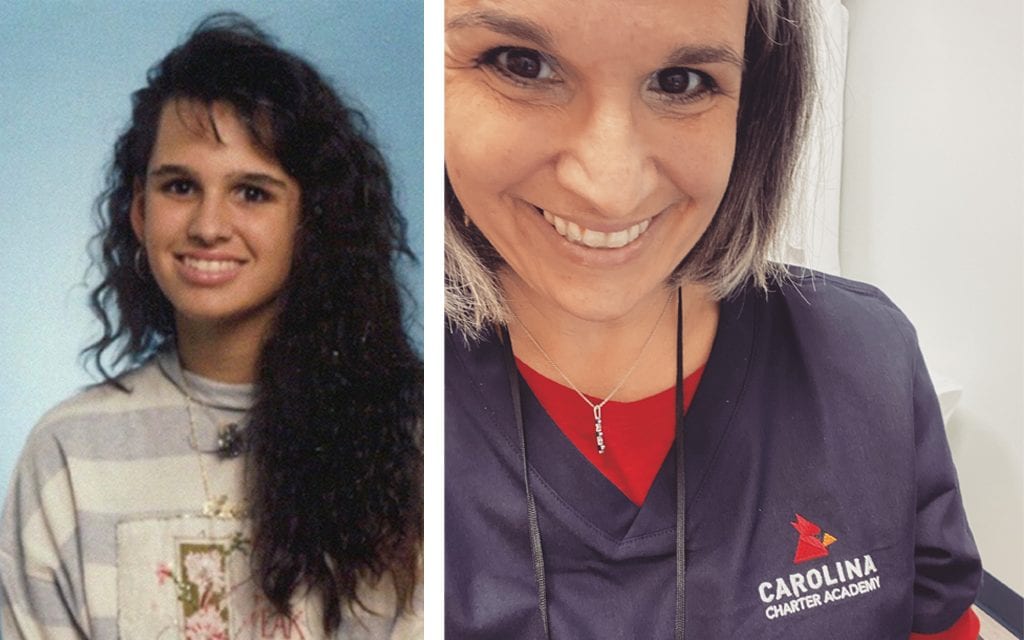

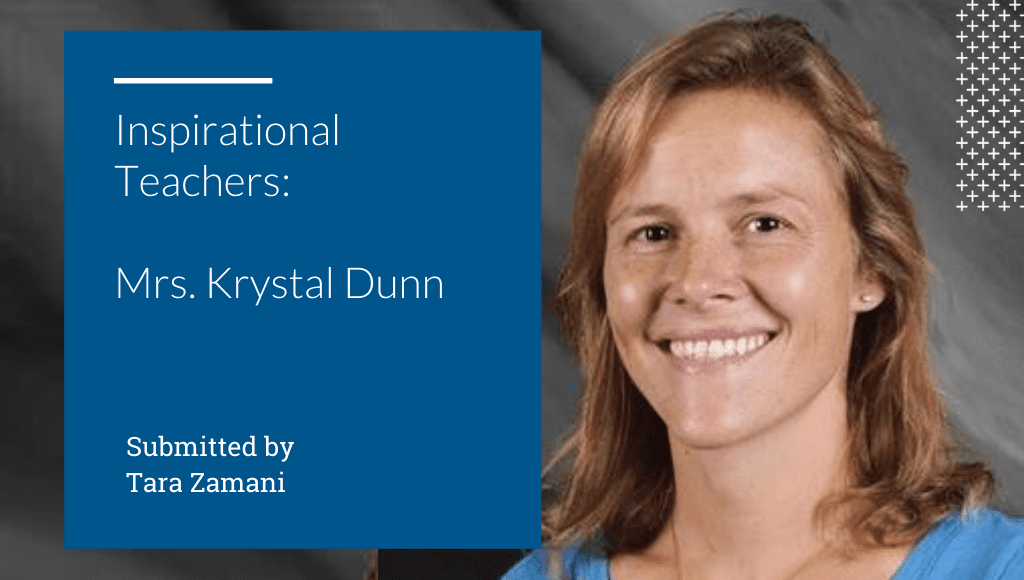
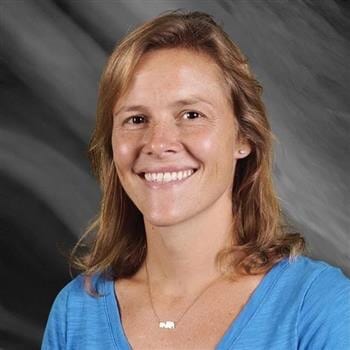 I never liked math and deep down believed I could never be good at this subject. I was always reluctant to take math classes. When I transferred to a new school in eighth grade, I was placed into the honors algebra class. I was very behind academically in algebra because I hadn’t taken pre-algebra the previous year. I was nervous but my biggest problem was that I had low self-esteem about my math skills. I requested the textbook my peers had completed the previous year from my teacher, Mrs. Dunn. I disciplined myself and with the help of my mom, I was able to complete the whole textbook within two weeks.
I never liked math and deep down believed I could never be good at this subject. I was always reluctant to take math classes. When I transferred to a new school in eighth grade, I was placed into the honors algebra class. I was very behind academically in algebra because I hadn’t taken pre-algebra the previous year. I was nervous but my biggest problem was that I had low self-esteem about my math skills. I requested the textbook my peers had completed the previous year from my teacher, Mrs. Dunn. I disciplined myself and with the help of my mom, I was able to complete the whole textbook within two weeks.